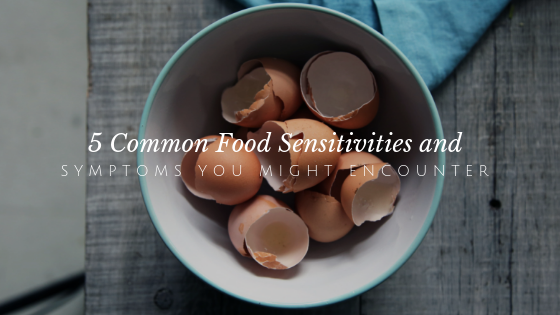5 Food Sensitivities and Symptoms You Might Encounter

Some people can eat what they want without worry — but for many others, certain foods can trigger reactions. Some of those reactions could be mild to the point where you might not associate them with what you’re eating, while others are more severe and could require medical attention.
What foods tend to be the root of common sensitivities? Take a look below and think about what you eat. If you’ve had any symptoms like diarrhea, rashes, headaches, bloating, fatigue, nausea, abdominal pain, acid reflux, a runny nose, skin flushing or acne after eating something, you might be sensitive to one of these foods or ingredients. The best way to find out is by doing an elimination diet to see what’s causing it and getting with your doctor to help you sort it out.
- Dairy
One common dairy sensitivity is known as lactose intolerance. It happens when you have a shortage of lactase enzymes that prevent you from digesting milk and dairy products. Luckily, it’s very simple to find dairy alternatives these days, so ditching dairy from your diet isn’t very difficult.
- Gluten
So many people are going gluten-free these days though the most important group that must are those with Celiac disease. Gluten is what the proteins in wheat, rye, triticale, and barley are called. Those with a wheat allergy and non-celiac gluten sensitivity should avoid items with gluten. Again, it’s so easy to find gluten-free items that you shouldn’t have a problem going gluten-free without missing out on much.
- Caffeine
While caffeine is safe for most, some people are very sensitive to caffeine. You’ll know it if you react to consuming even just a small amount. Notice how you feel after you drink a cup of black coffee. Leave out the dairy and sugar, if you usually use it, so that you know you aren’t reacting to one of those ingredients.
- FODMAPs
Representing “fermentable oligo-, di-, mono-saccharides and polyols,” these are short-chain carbs found in natural contents of foods. They can be poorly absorbed in your small intestine and then go to your large intestine. It’s here they ferment which creates gas, bloating and discomfort. Apples, soft cheeses, honey, milk, fructose, bread, and beans are some of the most common FODMAPs.
- Eggs
If you aren’t allergic to eggs but have trouble digesting them, you may have a sensitivity. If diarrhea and abdominal pain arise when you eat them, try avoiding eggs and see if your symptoms dissipate.
Histamine is the most commonly associated with food sensitivities. For those with no problems, this chemical in your body works as it should for your immune, digestive, and nervous systems. If you have a sensitivity, though, it builds up in the body. Foods to avoid would be fermented foods, cured meat, citrus, aged cheese, smoked fish, vinegar, and avocados, to name a few.
Others may find aspartame, MSG, food colorings, yeast, and sugar alcohols to cause the symptoms that are consistent with food sensitivities. If you notice a pattern when you eat the things you eat, keep a journal, and start eliminating these common sensitivity-causing foods to feel better faster.
The best bet is to stick with organic whole foods, ditching the processed, packaged foods as much as possible.
Do you think you have a sensitivity to any foods?
Comment below and let me know, I may be able to help you figure out the answer.
Join my Refresh 21 Days of Eating Clean – early bird pricing starts through the 24th – only $97. You’ll get meal plans, recipes and support to help you learn what foods might be best for you. All while working to restore your health goals! CLICK HERE to register!
